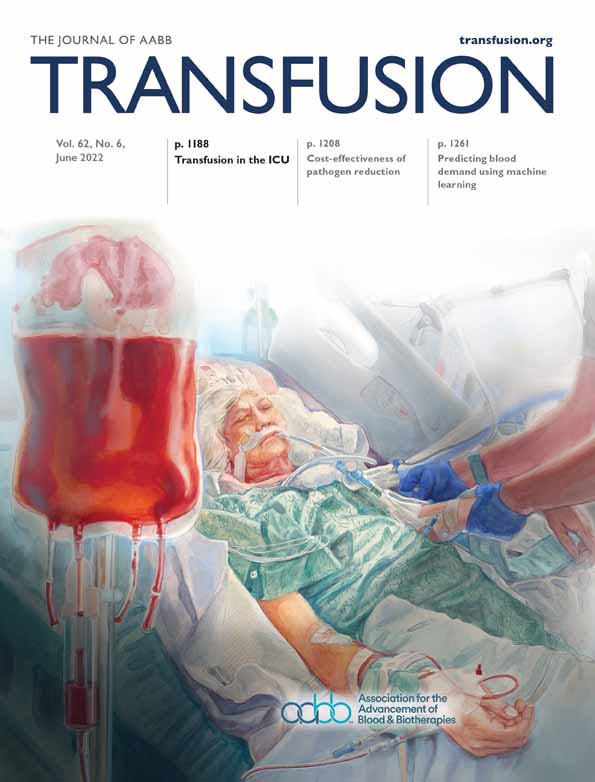Balancing non-discriminatory donor selection and blood safety in the Netherlands: Evaluation of an individual risk assessment of sexual behavior
Funding information: Product and Process Development - Cellular Products, Grant/Award Number: PPOC20-01
Abstract
Background
To better balance the safety of the blood supply and the inclusion of men who have sex with men (MSM), further improvements are needed to the risk management strategy employed in the Netherlands to reduce transfusion-transmissible infections (TTIs). A gender-neutral individual risk assessment could provide a solution by determining donor eligibility based on sexual behaviors known to increase the risk of TTIs. Our objective is to estimate the proportion of blood donors that would be deferred by such an assessment, as well as their discomfort answering such questions.
Study design and methods
Two surveys were distributed in May 2020 to assess sexual behavior in blood donors in the last 4, 6, and 12 months, as well as their discomfort reporting such information. A combination of both surveys measured the extent to which discomfort was associated with reporting sexual behavior. A high-risk sexual behavior pattern was defined as having had multiple sexual partners and having engaged in anal sex, without consistent condom use.
Results
Of all 2177 participating whole blood donors, 0.8% report engaging in high-risk sexual behaviors over the last 4 months and would therefore be ineligible to donate. When accounting for the additional proportion of donors that reported such questions would stop them from donating, 2.0% and 3.2% of female and male donors, respectively, would be lost.
Discussion
Gender-neutral eligibility criteria based on high-risk sexual behaviors may reduce the overall number of eligible donors in the Netherlands, but could make blood donation more accessible to a broader group of donors.
CONFLICT OF INTEREST
The authors have disclosed no conflicts of interest.




